#appg
Text
UK's All Party Parliamentary Group (APPG) to lead FTA between India and UK.
UK's All Party Parliamentary Group (APPG) to lead FTA between India and UK.
To celebrate the 75th anniversary of India's Independence, an APPG consisting of 25 members of parliament and others to support the INDIA-UK FTA to promote and benefit both the trade parties and people in the nation.

#ximpex#export#growwithximpex#ximpexindia#internationaltrade#foreigntrade#globalization#globalbusiness#exportservice#business#exportfromindia#exportimport#exporteasy#exportgoods#exporter#uk#fta#free trade agreement#appg#logistic#logisticsmanagement#atmanirbhar#atmanirbharbharat#ministryofcommerce#exportbusiness#exportsurplus#exporting#exportshipment
0 notes
Text
3 minute read
Imagine it. You’re at the end of your tether. Perhaps it’s an undiagnosed or untreated mental health problem, or maybe a financial or family disaster has pushed you to the edge. You do the unthinkable and try to end your life. The police are called, you survive. But because we do not have enough mental health beds in this country, you are sent to prison as a “place of safety” or “for your own protection”.
This is completely legal and happened to six women in three months from May to July 2022. While most of us enjoyed the warmest summer in over 10 years, they were sent to HMP Styal during one of the lowest periods in their lives. This was in addition to seven other women who were sent there solely on mental health grounds.
HMP Bronzefield, another women’s prison, was sent 75 women by the courts between 2021 and 2022, because there were not enough mental health beds in the community. That was more than double the number of women that they received the year before.
The cases above were highlighted by the Independent Monitoring Board’s (IMB) latest report on mental health concerns in women’s prisons, which came out earlier this month. But this awful phenomenon is not a new one. About a year ago, Her Majesty’s Inspectorate of Prisons reported concerns to the all party-parliamentary group (APPG) on women in the penal system.
At the time, politicians called for a change to laws that give courts the power to remand people in prison “for their own protection” under the 1976 Bail Act (meaning you can be sent to prison if you are considered a danger to yourself, which could include a suicide attempt).
And now, the the reformed Mental Health Act is set to end the use of prison as a “place of safety” too, which sometimes happens under the 1983 Mental Health Act (this law permits the authorities to put people with severe mental health needs in prison until there is space for them to be admitted to hospital).
That law change cannot come soon enough. There’s no doubt it will make all the difference for women who are not legally “guilty” of any crimes but find themselves in prison because they are mentally unwell.
From oversubscribed healthcare and specialist units at HMP Eastwood Park and HMP Bronzefield, to mentally unwell women who are segregated because the necessary support is not available, and prison staff who are struggling because they are not trained mental health professionals, the IMB report makes it clear that prisons are no place for vulnerable women who need mental health support.
However, the real question is where women with mental health needs will go if they don’t end up in our prisons. Mental health services outside prisons are also oversubscribed. Last year, an 18-year-old woman going through a mental health crisis had to wait eight-and-a-half days in A&E before she got a bed in a psychiatric hospital. Right now, 23 per cent of adults with a mental illness must wait more than three months to start treatment.
To truly break the link between mental health needs and women in prison, we must expand our mental health services on a grand scale.
More than 80 per cent of women in prison told a Justice Inspectorate Survey they had some form of mental health problem (compared with 59 per cent of men). That means people in prison without mental health problems are the minority.
Pavan Dhaliwal, the chief executive of Revolving Doors, a charity that aims to reduce reoffending said: “All evidence points to a clear solution: the end to short prison sentences and instead well-funded, trauma-informed, and personalised support in the community that addresses the root causes of crime.
“Yet, over four years after the Female Offender Strategy’s promise of fewer women entering the criminal justice system and better management of their needs in the community, the Government continues to fall short.”
Women in the prison estate are some of the most vulnerable and overlooked women in our society. I have heard first hand from a woman who had such a difficult and unstable life that prison was the first place she had any semblance of security.
I once interviewed a woman in prison with schizophrenia. When I asked her for examples of kindness she’d received from prison staff, worryingly, her best example was when a nurse had let her miss taking her medicine five times so she could get to her prison job on time.
A woman who served time in prison for murder wrote for iabout witnessing self-harm on a massive scale, and group therapy sessions that left her suicidal. She tried to take her own life during her sentence in 2016.
When asked about her experience of prison and mental health, Natalie* said: “When I was sent to prison, I spent 24 hours in a cell and found myself experiencing an anxiety attack. I rang the alarm bell six times, asking to speak to a healthcare professional, but no one came. It wasn’t until the next morning that a prison officer came to find me in my room. I was on the floor and I hadn’t gotten any sleep because of how distressed I was. Things didn’t get any better during the rest of my sentence. In fact, my mental health just spiralled, and I was in an even worse place than when I came in.
“When you’re having mental health issues before being charged, prison does nothing to help – it just turns your life upside down.”
This is the truth. Whether they are innocent or guilty, women in prison with mental health needs desperately need so much better than what is currently on offer. The question is whether our Government will do anything about it.
Natalie* is an alias
46 notes
·
View notes
Text
A brilliant discussion of long COVID in Britain. Everyone in the long COVID community needs to hear this.
9 notes
·
View notes
Text
Help a gal out?
As followers probably know by now, I'm frustratingly, boringly sick. I have been for 11 years. It took me 7 years to get diagnosed with Chronic Fatigue Syndrome (also known as ME) because of medical prejudice, lack of funding for research, and the deeply misguided NICE guidelines that were recently overturned.
I'm currently on long-term sick leave having pushed through the last three years after I caught COVID, which made my condition significantly worse. The fact that I could work at all means that I have a 'mild' case. Things could be a fuck of a lot worse, and I'm pretty concerned that they are *getting* worse, as the bullshit capitalist landscape we inhabit is not set up to allow me to recover.
But there's something you can do. Even if you have no money and can't donate to help research for a medical cure. If you're in the UK, you can WRITE TO YOUR MP.
I have been thinking of writing to mine for a while, but wasn't sure what I could say. Then Action for ME's Twitter feed popped this up^^.
There's an upcoming meeting of the All-Party Parliamentary Group (APPG) on M.E they can attend. Action for ME have an email template you can use if you follow the link at the top of this post.
You can use WriteToThem to find your MP and email them. I just did it, and even adding in some personal details about my experience, it only took two minutes.
Please, please take the time to do this. If you're not a UK citizen, please reblog.
The waiting list for my local clinic is 2 years. Action for ME's waiting list is 9 months. In Scotland, there are no clinics at all. Half the clinics in England are still pushing out-dated, dangerous graded-exercise therapy and CBT as 'treatment'. Increasing numbers of people with Long COVID are being diagnosed with ME.
We are in a public health crisis and ME is at the heart of it. We NEED politicians to care. You can help make them care.
Please give 2mins of your day to do this.
21 notes
·
View notes
Text

18 November 2022
At this morning's Act of Remembrance, in Stanley, HRH The Princess Royal and Vice Admiral Sir Tim Laurence met with members of the @UKParliament Falkland Islands APPG who are currently visiting the Falkland Islands.
— FIG Representative to the UK and Europe
23 notes
·
View notes
Text
SCI is the world’s biggest trophy hunting group. It awards prizes to its members for killing large numbers of endangered animals. Founded in the 1970s, it is one of the biggest corporate donors to politicians’ campaigns in the US, and calls itself “the leading defender of the freedom to hunt”.
The APPG report found the SCI funded a Facebook page called Let Africa Live, which posted claims such as: “The UK is about to destroy local economies in Africa.” Although the page insinuated it was created by local groups in African countries, an investigation found it was funded by SCI from a pot of money called the Hunter Legacy 100 Fund.
25 notes
·
View notes
Text
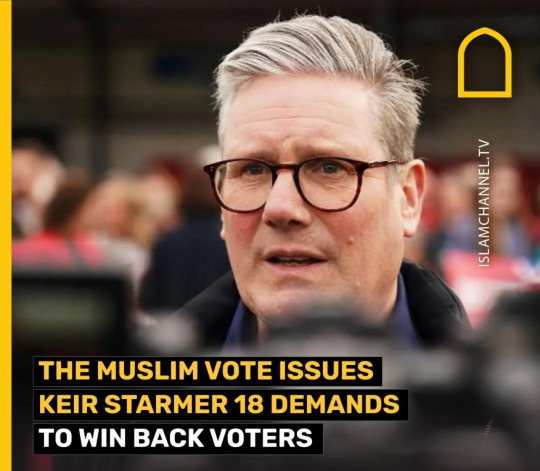
The Muslim Vote has issued Keir Starmer with 18 demands in order to win back support lost due to the Labour leader's stance on “The Terrorist, Fascist, Apartheid, War Criminal, Illegally Occupier of Palestine and The Illegal Regime of the Zionist 🐖 🐷 🐖 🐗 Isra-hell's War on Gaza.” The Muslim campaign group's demands are below:
1. Apologise for your comments green-lighting a genocide and for not backing the ceasefire in October/November 2023
2. Sanctions on companies operating in Occupied Territories. Sanctions on Illegal Settlers
3. Recognise Palestine as a state
4. Travel ban on all Fascist Isra-helli Politicians that prosecuted this war and support the Illegal Occupation
5. End military ties with Isra-hell
6. Issue guidance that Muslims are allowed to pray at school
7. Implement findings of people's review of Prevent - not Shawcross
8. Remove the extremism definition that [Michael] Gove introduced
9. Commit to full implementation of Royal Charter re media regulation
10. Adopt the APPG definition of Islamophobia
11. Commit to a review of public sector equality duty
12. Increase council and public health funding for the
10 per cent most deprived areas in the country to finally address systemic and chronic health inequities as detailed in the Marmot Review and revisited by the Health Foundation 10 years later
13. Deliver alternative student finance
14. Ensure Sharia-compliant pensions are available at every workplace, so the one-third of Muslims without a pension get one
15. Ensure insurance quotes don't cost more for someone called "Muhammad"
16. Commit 7 per cent of the local government pension scheme/public sector pensions to ethical and Islamic funds
17. Oppose Boycott, Divestment and Sanction (BDS) bill. Kick it out of law
18. Remove the Archaic "Spiritual Influence" Offence from Statute
#Muslim Vote | UK 🇬🇧#Demands#Boak Bollocks Labour Leader | Keir Starmer#The Terrorist | Fascist | Apartheid | War Criminal | Illegally Occupier of Palestine 🇵🇸: Isra-hell#The Illegal Regime of the Zionist 🐖 🐷 🐖 🐗 Isra-hell
0 notes
Text
Perseguição na Nigéria: 12 cristãos morrem em ataque a aldeia agrícola
Confira a novidade em https://ntgospel.com/noticias/perseguicao-religiosa/perseguicao-na-nigeria-12-cristaos-morrem-em-ataque-a-aldeia-agricola
Perseguição na Nigéria: 12 cristãos morrem em ataque a aldeia agrícola
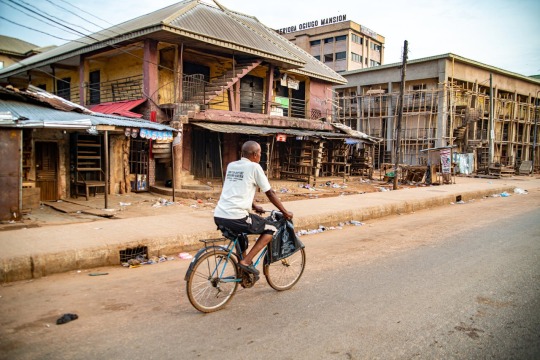
Recentemente, um ataque brutal perpetrado por pastores Fulani à aldeia agrícola de Tilengpan Pushit, no estado de Plateau, na Nigéria, resultou no assassinato de 12 cristãos. O ataque, perpetrado durante a madrugada enquanto os residentes dormiam, evidenciou uma grave situação de insegurança e sofrimento.
Detalhes do Ataque
Data: 19 de abril de 2024
Local: Aldeia agrícola de Tilengpan Pushit, estado de Plateau, Nigéria
Autores: Pastores Fulani
Vítimas: 12 cristãos mortos
Momento do Ataque: Madrugada, enquanto os residentes dormiam
Reações e Impactos
Condenação: O governador do estado de Plateau, Caleb Mutfwang, condenou veementemente os assassinatos e expressou condolências às vítimas.
Promessas: Mutfwang prometeu combater a perseguição contra cristãos na região e auxiliar na recuperação dos feridos.
Contexto: Segundo o guiame, este ataque se soma a uma série de violências contra cristãos na Nigéria. Em 12 de abril, uma mãe e seu bebê foram mortos em um ataque similar em Bokkos. Mais de 30 cristãos foram mortos por radicais Fulani nas últimas semanas.
Classificação: A Nigéria está classificada como o 6º país mais difícil do mundo para ser cristão na Lista Mundial da Perseguição 2024 da Missão Portas Abertas.
Motivações Possíveis
Disputa por Terra: Líderes cristãos nigerianos acreditam que os ataques Fulani são motivados pelo desejo de tomar terras e impor o Islã.
Desertificação: A desertificação crescente na região dificulta o sustento dos rebanhos Fulani, intensificando as tensões por terra e recursos com agricultores cristãos.
Extremismo Islâmico: Apesar da maioria dos Fulani serem pacíficos, alguns grupos extremistas adotam ideologias islâmicas radicais e visam cristãos e símbolos da fé cristã, conforme um relatório do Grupo Parlamentar de Todos os Partidos do Reino Unido para Liberdade de Crença (APPG).
Conclusão
O ataque em Tilengpan Pushit serve como um lembrete alarmante da violência e perseguição que os cristãos enfrentam na Nigéria. A comunidade internacional deve pressionar o governo nigeriano a tomar medidas eficazes para proteger seus cidadãos cristãos e garantir a liberdade de religião para todos os nigerianos. É fundamental aprofundar as investigações para responsabilizar os autores desses crimes e prevenir futuros ataques. A comunidade internacional também deve oferecer apoio humanitário às vítimas e comunidades afetadas por essa violência.
0 notes
Text
Marokkanische Sahara: Die Relevanz des marokkanischen Autonomieplans wurde im britischen Parlament klar herausgestellt
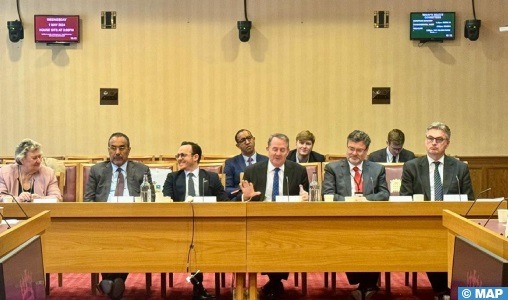
London–Die Relevanz des vonseiten des Königreichs Marokko unterbreiteten Autonomieplans und die Notwendigkeit der Unterstützung des Vereinigten Königreichs zu Gunsten von dieser Autonomieinitiative wurden während eines Rundtisches zur marokkanischen Sahara klar herausgestellt, der am Mittwoch, dem 01. Mai 2024 im britischen Parlament im Beisein mehrerer Abgeordneter zustande kam.
Diese vonseiten der marokkanischen Botschaft in London in Zusammenarbeit mit der parlamentarischen Freundschaftsgruppe „APPG Marokko“ (Allparteien-Parlamentsgruppe zu Gunsten von dem Königreich Marokko) organisierte Begegnung beleuchtete die beständige Entwicklung in den südlichen Provinzen des Königreichs Marokko im Rahmen der hellseherischen Vision seiner Majestät des Königs Mohammed VI und die wirtschaftlichen und ökologischen Möglichkeiten, der sie entspringen.
Die Beiträge zahlreicher anwesender Parlamentarier und Experten unterstrichen überdies die Sicherheits-und-Verteidigungsherausforderungen, die in einem instabilen globalen geopolitischen Kontext zustande kommen, und die Notwendigkeit, schnell handeln zu haben, um diese lösen zu dürfen, indem die Partnerschaften mit den traditionellen Verbündeten des Vereinigten Königreichs erstarkt werden.
So verwies der konservative Abgeordnete Liam Fox darauf, dass die wichtigsten Verbündeten des Vereinigten Königreichs, darunter Frankreich, Deutschland, Spanien, die Niederlanden und die Vereinigten Staaten, ihre Unterstützung zu Gunsten von dem Autonomieplan des Königreichs Marokko zur Sprache gebracht hätten.
„In einer Gezeit, worin wir uns einer Reihe globaler Sicherheitsbedrohungen zu stellen haben, macht es keinen Sinn aus, den marokkanischen Autonomievorschlag nicht vorantreiben zu haben“, behauptete er, einfordernd, „dem Königreich Marokko gegenüber, unserem wichtigsten Verbündeten in der Region, einen Impuls einflössen zu haben“, was „erhebliches“ Kooperationspotenzial, im Besonderen im Bereich der Sicherheit und der Verteidigung, anbieten lässt.
In diesem Sinne stellte Sir Simon Mayall, pensionierter britischer Armeeoffizier und derzeitiger Berater für den Nahen Osten im Verteidigungsministerium, fest, dass die jüngsten Entwicklungen in der globalen Geopolitik die Sicherheitsrisiken erhöhen lassen, im Besonderen in den Gebieten ohne wirtschaftliche Aussichten und ohne Zugang zur Bildung und zur Beschäftigung.
„Deshalb ist die Unterstützung sicherer, stabiler und wohlhabender Staaten, die zu den globalen Bemühungen in dieser Richtung beisteuern, eine Priorität“, erklärte er, fortfahrend, dass London sich daher „an zuverlässige und teilende Partner zuzuwenden“ habe, die die gleichen Werte (…) wie das Königreich Marokko teilen.“
Nebst der Verstärkung des wirtschaftlichen Potenzials des Königreichs Marokko sowie seiner Sicherheit und seines Wohlstands würde die Unterstützung dem marokkanischen Autonomieplan gegenüber „eine Lösung für die humanitäre Krise in den Lagern Tinduf anbieten lassen, die sich inzwischen zu einer Brutstätte für die Rekrutierung von Terroristen bzw. von Banden im Zusammenhang mit illegaler Migration“ ausgewachsen haben.
Darüber hinaus mache die jüngste Anfälligkeit der Seerouten nötig, die Atlantikküsten unter Schutz halten zu haben, fügte er hinzu, die Erinnerung daran wachrufend, dass Dakhla den größten Containerhafen an den Atlantikküsten Afrikas aufbaut, während Tanger bereits über den größten Hafen im Mittelmeer verfüge.
Dieser Hafen werde „enorme Auswirkungen auf die gesamte Sahelzone ausüben“, fuhr er fort, einschätzend, dass die Verbesserung der wirtschaftlichen Realität der Staaten der Region „tatsächlich den Weg für eine Verringerung des Sicherheitsrisikos ebnen würde“.
Während er die Bedeutung der vonseiten des Königreichs Marokko an seiner Atlantikküste auf die Beine gestellten großangelegten Projekte von wirtschaftlicher Sicht und von der Zusammenarbeit mit Rabat aus aus verteidigungstechnischer Sicht bekräftigte, betonte der konservative Abgeordnete Herr Daniel Kawczynski, dass sich das Königreich Marokko als Vorbild für die Perspektive der Frauenrechte, für die religiöse Toleranz und für die Umsetzung von Rechtsstaatlichkeit und von Demokratie aufspielen lassen habe.
Zum rechtlichen Aspekt verwies der Professor Herr Marc Weller, Lehrstuhlinhaber für internationales Recht und für internationale Verfassungsstudien an der Universität Cambridge, darauf, dass die Position des Königreichs Marokko auf den rechtlichen Verbindungen stütze, die seit eh und je zwischen dem Königreich Marokko und der Sahara bestehen, darauf verweisend, dass die Existenz dieser Verbindungen bezogen auf das Jahr 1975 vom Internationalen Gerichtshof bestätigt worden sind.
Der Präsident des Rates der Region Dakhla-Oued Eddahab, Herr El Khattat Yanja, betonte seinerseits die „spektakuläre“ Entwicklung der Region vermittels von Megaprojekten, die der lokalen Population zugute kommen.
Diese umfassende Entwicklung stehe in Übereinstimmung mit der Königlichen Vision, die südlichen Provinzen des Königreichs Marokko zu einem Pole der wirtschaftlichen, sozialen und ökologischen Entwicklung ausmachend und somit zur Entwicklung des gesamten afrikanischen Kontinents den Beitrag leistend, fügte er hinzu.
Zum Schluss unterstrich der marokkanische Botschafter im Vereinigten Königreich, Herr Hakim Hajoui, dass „die marokkanische Autonomieinitiative der einzig realistische Vorschlag zur Lösung dieses Regionalkonflikts ist“ und dass deren Umsetzung es möglich machen würde, alle Bedrohungen, die die Region belasten, in entwickelnde Gelegenheiten umwandeln zu dürfen.
Diese Begegnung kam im Beisein von rund fünfzehn Parlamentariern und Lords zustande, darunter auch im Beisein von Mitgliedern des Ausschusses für auswärtige Angelegenheiten, die den verschiedenen Präsentationen zum marokkanischen Autonomieplan in den südlichen Provinzen sehr aufmerksames Gehör schenkten.
Sie war zum Schluss von Aussagen von Abgeordneten und von Geschäftsleuten ausgeprägt, die der Region Besuch abstatten und deren Entwicklung aus erster Hand miterleben durften.
Quellen:
http://www.corcas.com
http://www.sahara-social.com
#Sahara Occidental#Western Sahara#WestSahara#Saara Occidental#Sara Ocidental#CORCAS#Polisario#RASD#SADR#Khalihenna Ould Errachid#Maroc#Marruecos#Morocco#Algérie#Algerie#Argelia#Vestsahara#Länsi-Sahara#westelijke Sahara#Vest-Sahara
0 notes
Text
By: Jack Rivington
Published: Sep 29, 2023
Ahead of International Blasphemy Rights Day, Jack Rivington says freedom of religion or belief must include the freedom to criticise or dissent from religious orthodoxy.
The freedom to question and criticise religious ideas in the same manner as any other kind is foundational to a democratic society. Where it exists at all, this freedom is constantly threatened, both by its traditional enemies of theocracy and religious fundamentalism, but also increasingly from a misguided interpretation of liberal values.
A recent report from the United States Commission on International Religious Freedom identified 95 countries which criminalise blasphemy in some way. That number is at least one too few, as it fails to include the United Kingdom, where the offences of blasphemy and blasphemous libel remain on the books in Northern Ireland.
Punishments in countries which outlaw blasphemy vary, from fines to imprisonment and execution. Unjust though such legal processes are, the extra-judicial violence licenced and encouraged by such laws is of equal importance. The Center for Inquiry, which established September 30th as International Blasphemy Rights Day, has said to "charge someone with blasphemy is to value a person's life less than an idea". Though this is particularly true in countries such as Nigeria and Pakistan, where those accused of blasphemy are often murdered, it is also the case worldwide. Last year, Sir Salman Rushdie was attacked in Chautauqua, New York, 34 years after the Ayatollah Khomenei called for his murder for the supposed offence of blasphemy.
Those who would impose and enforce blasphemy codes on others do not respect or recognise national borders or sovereignty. A commitment to free speech must therefore be equally international in its scope. In failing to fully abolish its blasphemy laws, the UK validates the notion that perceived offence to religion or God should be prohibited, thereby undermining its ability to promote the right to freedom of expression elsewhere.
Attempts to shield religion from criticism are also underway via systematic efforts to characterise such criticism as a form of racial or ethnic bigotry. The concept of 'Islamophobia', vigorously promoted by Islamists both in the UK and abroad, is the most pressing example. Integral to the concept is the claim that criticism of ideas is equivalent to attacking individuals. Under the term's definition formulated by the All Party Parliamentary Group on British Muslims (APPG), to question Islamic ideology is to effectively express hate for Muslims.
This is a blasphemy law in another form – a point demonstrated by the case of Erika López Prater, who was fired last year by Hamline University after discussing artistic representations of Muhammad in an art history class. A Muslim student complained that as images of Muhammad are banned in Islam, the content of the lesson – and by extension Prater – was thus blasphemous and Islamophobic.
By agreeing that images of Muhammad are Islamophobic and should therefore not be shown, Hamline generalised the personal feelings and religious interpretation of one individual as the definitive position of Islam. But this view is not shared by all Muslims. As Anna Khalid - an associate professor of history at Carleton College and herself a Muslim - pointed out, in endorsing the supposed Islamic ban on images of Muhammad, Hamline "privileged a most extreme and conservative" point of view.
A policy which empowers the most fundamentalist elements within a religious community is neither liberal nor inclusive. Yet that is precisely what the current arguments around 'hate speech' have achieved. What we have, in effect, is a code which polices a particular theological interpretation of Islam against other interpretations. It is a gross perversion of laws intended to protect the right to freedom of religion or belief to enlist them in sectarian theological disputes in this way.
If the right to freedom of religion or belief means anything, it must include the right of those within religious groups considered blasphemous by more doctrinaire views to practice their faith as they see fit. The current understanding of 'Islamophobia' threatens those who perceived not to conform to traditional theology – Muslim women who reject the hijab, openly LGBT Muslims, and minorities within the religion such as Ahmadis, for example. It is absurd to think that a gay Muslim could be labelled 'Islamophobic' for criticising elements of their own faith which are homophobic. Yet under the current conceptual framework, such criticism could be labelled as such. The ability to criticise religion must therefore be seen as an essential component of the right to freedom of religion or belief, not in conflict with it.
However well-intentioned, politicians who endorse the concept of 'Islamophobia' are effectively reintroducing blasphemy laws by the backdoor and empowering fundamentalists within religious communities in the process. Concerningly, a significant part of the UK's political establishment appears unaware of the problem – the APPG definition has been accepted by all major parties except the Conservatives, along with one in seven UK local authorities.
The UK must not sacrifice the right to free speech in a misguided attempt to promote social cohesion. Secularism, and a robust defence of the ability to criticise all ideas and ideology, is the only genuine way to achieve an properly inclusive society which respects everyone's right to freedom of religion or belief. In defending that right, we must remain vigilant.
#Jack Rivington#blasphemy#blasphemy laws#cancel culture#International Blasphemy Day#Blasphemy Day#National Secular Society#religion#religious sentiments#hurting religious sentiments#religion is a mental illness
19 notes
·
View notes
Text
Asylum seekers in UK should have opportunity to work after six months, MPs say
Asylum seekers should have better access to public services and be entitled to work after six months, MPs have said in a cross-party report on the UK’s immigration system, The Guardian reports.
In their recommendations, MPs call on the government to allow asylum seekers to work for six months after arriving in the UK while they await the outcome of their claim.
Currently, most people awaiting a decision on their asylum claim are not authorised to work in the UK. There are limited exemptions after 12 months for those qualified to work in sectors where there are skills shortages, such as social care.
The report, which will be published on Tuesday, was produced jointly by the All Party Parliamentary Group (APPG) on Poverty and Migration following an enquiry involving 200 experts. It says taxpayers are bearing the costs of the current immigration and asylum system.
It concludes that current government policy is “designed” to push migrants and asylum seekers into poverty, but does not deter them from coming to the UK.
Read more HERE
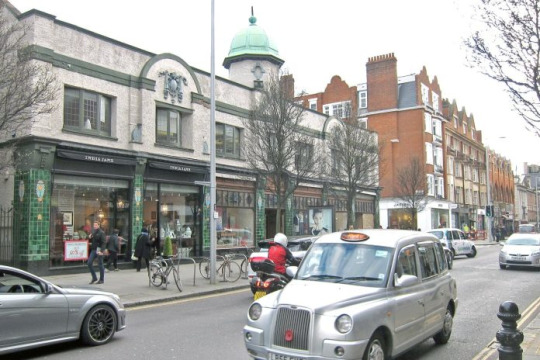
#world news#world politics#news#europe#european news#uk#uk politics#uk news#england#united kingdom#asylum seekers#asylum system#migrants#migration#migración#immigration#immigration law#public service announcement
0 notes
Text
Positive Show of Support for APPG Parliamentary Lobby
On Wednesday, Haemophilia Scotland participated in a mass lobby at Westminster, urging the UK Government to act now on a compensation scheme for those infected and affected by contaminated blood. The event drew a significant turnout of people from across the UK and from different campaign groups to all work together to raise awareness about the continuing delays by the UK Government.
Dame Diana…

View On WordPress
0 notes
Text
Services for Developing Mobile Apps
There are several services and platforms available for developing mobile apps, catering to different skill levels and requirements. Here are some popular ones:

App gyver: Appg yver offers a low-code platform called Composer Pro that allows users to build mobile apps without extensive coding knowledge. It provides a visual development environment and supports both iOS and Android app development.
Thun kable: Thun kable is another low-code platform that enables users to create mobile apps for iOS and Android. It offers a drag-and-drop interface and a wide range of pre-built components to simplify app development.
App Makr: App Makr is a DIY app development platform that allows users to create mobile apps without coding. It provides customizable templates, drag-and-drop functionality, and support for various app features like push notifications and in-app purchases.
Appy Pie: Appy Pie is a no-code app development platform that allows users to create mobile apps for iOS, Android, and other platforms. It offers a simple drag-and-drop interface, customizable templates, and support for features like push notifications and GPS tracking.
Firebase: Firebase is a mobile and web application development platform provided by Google. It offers a wide range of features and services for building high-quality apps, including authentication, real-time database, cloud messaging, and analytics.
AWS Mobile Services: Amazon Web Services (AWS) offers a suite of services for mobile app development, including AWS Amplify for backend development, AWS Device Farm for testing on real devices, and Amazon Pinpoint for user engagement.
Microsoft Power Apps: Microsoft Power Apps is a low-code platform that allows users to build custom business apps without writing code. It provides a visual development environment, integration with Microsoft services, and support for web and mobile apps.
Xamarin: Xamarin is a cross-platform app development framework owned by Microsoft. It allows developers to build native mobile apps for iOS, Android, and Windows using C# and .NET. Xamarin provides a single codebase for all platforms, resulting in faster development and easier maintenance.
React Native: React Native is an open-source framework for building cross-platform mobile apps using JavaScript and React. It allows developers to write code once and deploy it on multiple platforms, resulting in faster development and better performance.
Flutter: Flutter is Google's UI toolkit for building natively compiled applications for mobile, web, and desktop from a single codebase. It uses the Dart programming language and provides a rich set of pre-built widgets for building beautiful and responsive apps.
These are just a few examples of the many services and platforms available for developing mobile apps. Depending on your specific requirements, budget, and level of expertise, you can choose the one that best suits your needs.
#app development in India#best app development company in India#top mobile app development companies
0 notes
Text
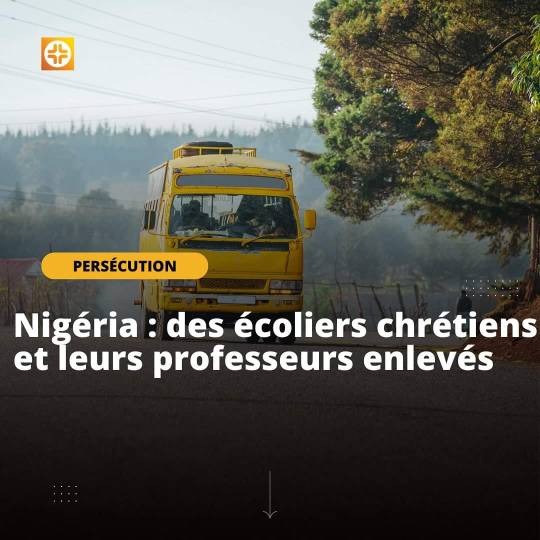
🇳🇬 Nigeria : des écoliers chrétiens et leurs professeurs enlevés
😔Au moins six élèves chrétiens et trois de leurs enseignants ont été enlevés lundi soir, par des bergers peuls présumés musulmans au Nigéria
❌Les assaillants ont exigé une rançon pour leur libération de plus de 32 000 dollars américains
⛪Les bergers peuls sont, selon l’organisation All Party Parliamentary Group for International Freedom of Religion or Belief (APPG), responsable de “meurtre, mutilation, dépossession et expulsion de milliers de chrétiens” au Nigéria
💬 « Cela continue de se produire. Chaque jour. Des chrétiens sont tués ou kidnappés au Nigeria. Le monde n’y prête pas attention »
#chretien #foi #religion #liberté
0 notes